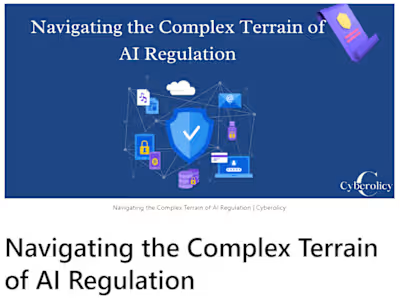Article on US Senate hearing on AI
AI Oversight: A Glimpse into the First US Senate Judiciary Subcommittee Hearing
On May 16th, 2023, the United States Senate Judiciary Subcommittee on Privacy, Technology, and the Law initiated the first in a series of hearings designed to create a robust framework for AI regulation and accountability. This critical dialogue, opened by an AI trained on legislative speeches and ChatGPT written content, underscored the formidable capabilities of AI and the potential ease with which it could mimic human speech.
The three-hour hearing was marked by a mutual desire for regulation from both the Senate and the tech industry, despite the absence of a clear path towards achieving this. In a paradigm shift from the norm, the tech giants were not the subject of intense scrutiny, but rather, both parties sought common ground, acknowledging the necessity for regulation but grappling with its specific implementation. As Senator Richard Blumenthal put it, the hearing was more about raising questions than providing answers.
The Subcommittee was adamant that lessons be learned from the regulatory missteps made during the rise of social media, which saw technology advancement outpace privacy and data protection rules. The potential risks of AI, including mass unemployment, disinformation, discrimination, and impersonation, were discussed. The Subcommittee highlighted the crucial need for transparency in AI operations, public disclosure of known risks, and the provision of access to independent researchers. They suggested a competitive system based on safety, with automatic restrictions or potential bans for commercial privacy breaches.
OpenAI's SAM Altman proposed that any AI released to the public should undergo extensive testing to manage risk and capitalize on the economic potential of the technology. He advocated for collaboration with the government to evolve safety measures and explore global coordination opportunities. Altman's recommendations included a nimble agency for pre- and post-deployment checks, safety standards, licensing provisions, and independent audits.
Christina Montgomery, Chief Privacy & Trust Officer at IBM, championed a precise regulation approach. This would involve tailoring rules to govern specific AI deployments and use cases, rather than blanket regulation of the technology itself. This approach would necessitate varying rules based on risk severity, clear risk definitions, transparency about AI interactions, and mandatory impact assessments for high-risk use cases.
Gary Marcus, Professor Emeritus at New York University, emphasized the importance of safety reviews prior to AI deployment, the need for a monitoring agency with the authority to recall AI systems, and funding for R&D to create an AI constitution.
The consensus was that a six-month moratorium on AI development would be detrimental to technological advancement and global competitiveness. The focus should be on human-centric decision-making, prioritizing regulation and audits for larger corporations while allowing startups and smaller entities room for growth under careful oversight. The tech industry was urged to proactively ensure that AI is trustworthy and ethical, instead of waiting for Congress to enact regulations. Future hearings scheduled for June and July will examine the impact of AI on patents and copyrights, with a focus on international cooperation.
Reference:
Like this project
Posted Feb 25, 2024
US Senate initiated hearings to create a robust framework for AI regulation and accountability.
Likes
0
Views
5




